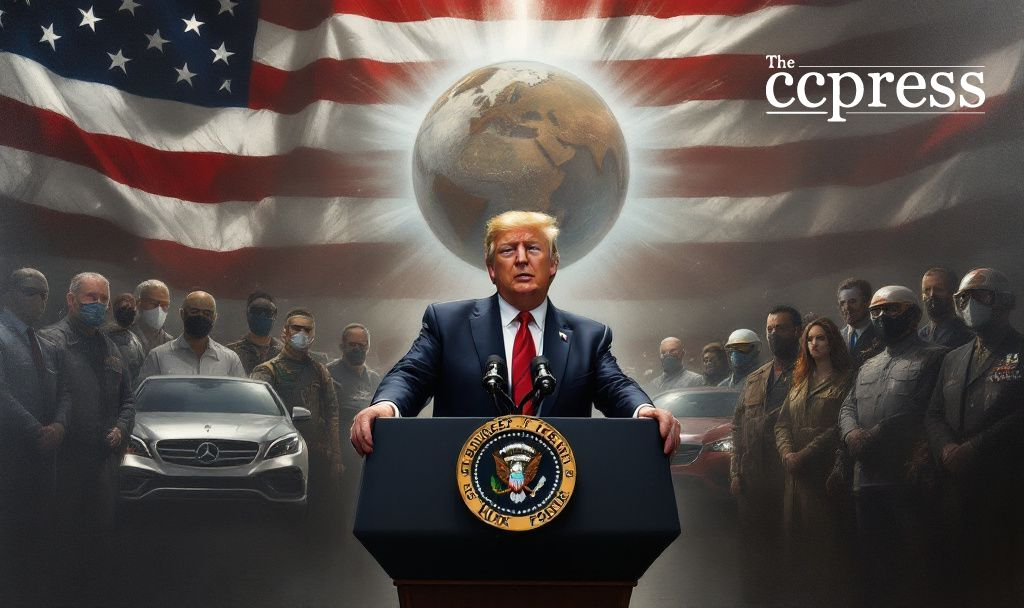- Main event, leadership changes, market impact, financial shifts, or expert insights.
- Tariff impacts U.S. manufacturing jobs.
- Stocks of major automakers fell after the announcement.
President Donald Trump announced a 25% tariff on imported cars and auto parts, effective April 2, 2025, aiming to bolster U.S. manufacturing within the auto sector.
The new tariff policy by President Trump signals a significant change in U.S.-global trade dynamics, affecting the auto industry with expected price hikes and market fluctuations.
In a major shift, President Trump declared a 25% tariff on car imports beginning in April 2025. The White House Press Secretary previewed this announcement, resulting in immediate market reactions. The tariff affects all passenger vehicles, including sedans and SUVs.
President Trump emphasized U.S. manufacturing benefits, stating, “If you build your car in the United States, there is no tariff.” The announcement saw negative impacts on global automakers, with share prices for General Motors and Ford falling.
The tariffs are seen to possibly affect consumer prices; some car models may see price increases of up to $12,200, as per expert analysis. These changes could also influence broader economic conditions, impacting household spending patterns. Economic experts have noted that tariffs could cause households to cut back on spending and dampen economic growth.
Industry experts warn of potential downsides, including a complexity of the global supply chain. Automobiles assembled in the U.S. still often rely on imported parts. Industry analysts agree that even U.S.-assembled vehicles often depend on imported parts due to the automotive industry’s global supply chain. There is also a foreseeable risk of retaliatory tariffs, impacting other sectors of the U.S. economy. Historical trends show past tariffs on steel and aluminum similarly caused global market shifts.
